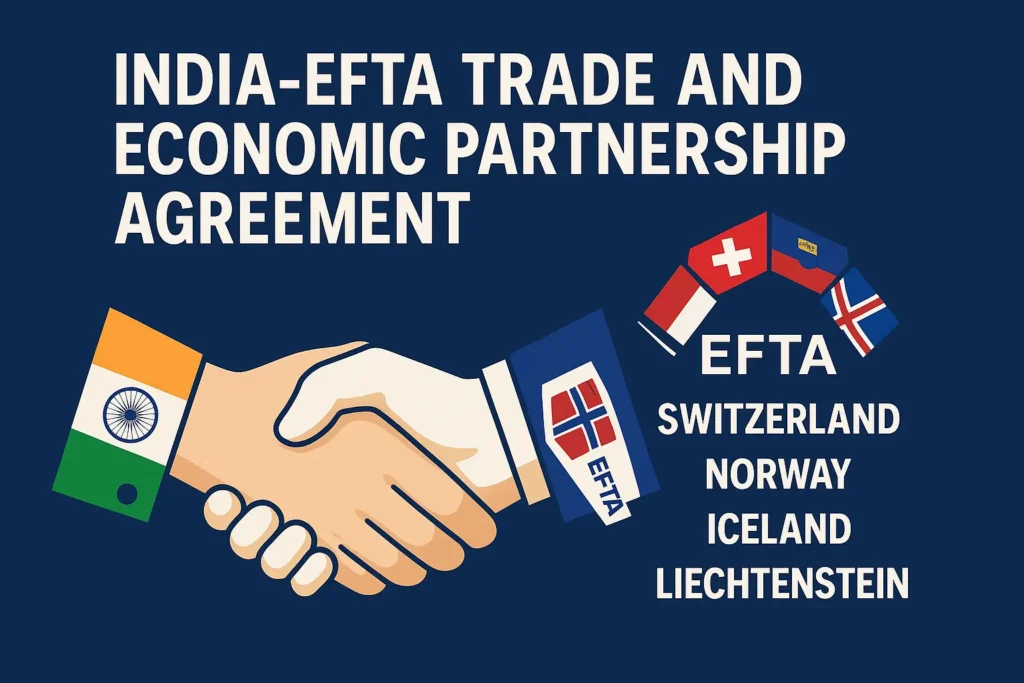India-EFTA Trade and Economic Partnership Agreement

Table of Contents
Current Affairs: India-EFTA Trade and Economic Partnership Agreement (TEPA) to Take Effect from October 1, 2025
The India-European Free Trade Association (EFTA) Trade and Economic Partnership Agreement (TEPA) will officially come into force on October 1, 2025, marking a major milestone in India’s global trade relations. The agreement was signed on March 10, 2024, in New Delhi, and is India’s first Free Trade Agreement with four developed European countries — Switzerland, Norway, Iceland, and Liechtenstein.
Key Highlights of TEPA:
- $100 Billion Investment Commitment: EFTA nations will invest USD 100 billion in India over 15 years, creating 1 million direct jobs.
- Scope: The agreement covers 14 key areas, including goods, services, investment, trade facilitation, intellectual property rights, and sustainable development.
- Market Access:
- EFTA has offered tariff concessions on 99.6% of India’s exports and 100% coverage for non-agricultural goods.
- India has offered 82.7% of its tariff lines, covering 95.3% of EFTA exports, while protecting sensitive sectors like dairy, soya, coal, pharma, and processed food.
- Services Sector Boost:
- India has offered commitments in 105 sub-sectors and gained access in 128 (Switzerland), 114 (Norway), 107 (Liechtenstein), and 110 (Iceland).
- Mutual Recognition Agreements (MRAs) will be implemented in professional services such as nursing, architecture, and chartered accountancy.
- Employment & Skill Development:
- The agreement emphasizes vocational training, technology transfer, and innovation in sectors like renewable energy, precision engineering, life sciences, and R&D.
- Investment Promotion:
- A dedicated India–EFTA Desk will serve as a single-window investment facilitation mechanism, focusing on renewable energy, life sciences, digital transformation, and engineering.
- Sustainability & Inclusivity:
- TEPA integrates commitments to sustainable development, social progress, and environmental protection, reinforcing India’s Make in India and Atmanirbhar Bharat initiatives.
Expected Gains:
- Enhanced exports of machinery, processed food, rice, guar gum, textiles, marine products, and engineering goods.
- Increased market access for IT, business services, education, and audio-visual sectors.
- Strengthened partnerships in technology, innovation, and green energy.
Source: PIB

